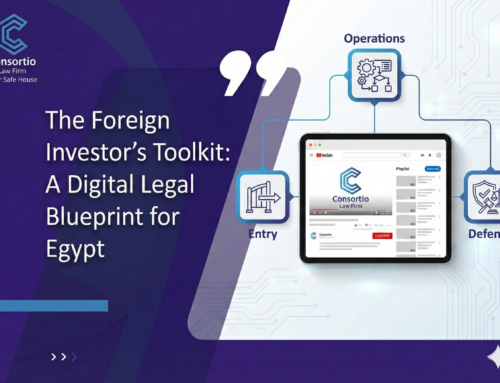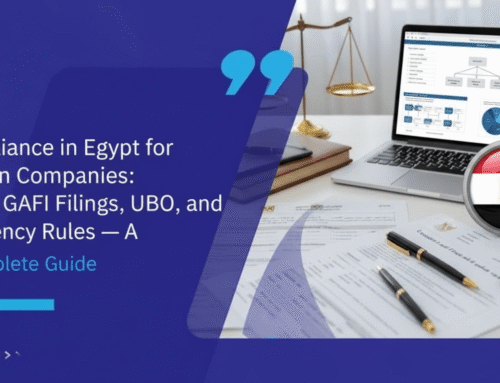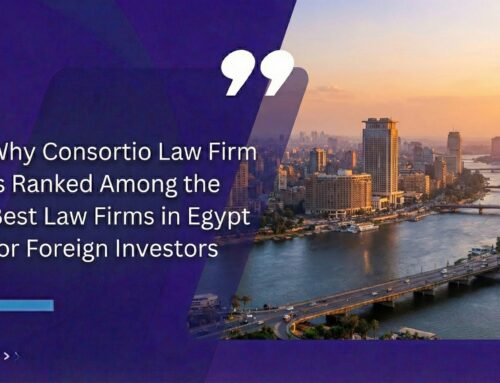In the lifecycle of a business, there may come a time when closing a limited company becomes necessary decision that business owners may need to make for various reasons. The process requires careful consideration and adherence to legal procedures, whether due to financial difficulties, changes in business direction, or simply reaching the end of its lifecycle.
Reasons to Consider Closing a Limited Company
There are various reasons that may lead business owners to consider this option, like retirement or emigration or the limited company structure no longer suits their needs. Or they may want to close their business because they are losing too much money.
Some of reasons company owners decide to cease trading are:
-
Financial Difficulties
One of the most common reasons for closing a limited company is financial distress. If a company is consistently operating at a loss, struggling to pay debts, or facing insolvency, it may be more prudent to cease operations rather than continue to incur losses.
-
Lack of Profitability
If a business is not generating sufficient profit to justify its ongoing operations, owners may consider closing the company. This could be due to increased competition, market changes, or a decline in demand for the products or services offered.
-
Changes in Personal Circumstances
Personal factors can also influence the decision to close a limited company. This may include retirement, health issues, or a desire to pursue other interests or career opportunities. When personal priorities shift, it may no longer be feasible to manage a business.
-
Market Conditions
External market conditions can significantly impact a company’s viability. Economic downturns, changes in consumer behavior, or new regulations can create an environment where continuing operations is no longer sustainable.
-
Strategic Business Decisions
Sometimes, closing a limited company is part of a broader strategic decision. Business owners may choose to consolidate operations, merge with another company, or pivot to a different business model that requires the dissolution of the current entity.
-
Legal and Compliance Issues
Ongoing legal issues or compliance challenges can also lead to the decision to close a limited company. If a business is facing significant legal liabilities or regulatory hurdles, it may be more advantageous to close the company rather than risk further complications.
-
Shareholder Disputes
Disagreements among shareholders can create a toxic atmosphere and impede a company’s progress. When disputes become intractable, and no resolution is in sight, closing the company may be the best way to prevent further damage to the business and protect shareholders’ interests.
-
Dormant Company
When a company ceases trading and has no plans to resume operations, it may be prudent for the director to close the company. This prevents ongoing administrative costs, such as annual filings and fees, and ensures the company does not inadvertently incur any new liabilities.
-
Expiration of the Company’s Purpose
Some companies are formed for a specific purpose or project, and once that objective has been achieved, the director may choose to close the company. This allows the business to conclude its operations in a controlled manner and distribute any remaining assets to shareholders, ensuring the company’s mission is fulfilled.
-
Change of Business Direction
Sometimes, a director may choose to close a company to pursue a new business venture or because the original business purpose is no longer viable. In such cases, closing the company allows the director to make a fresh start, redirect resources, and focus on a new strategy that holds more promise.
How to Close a Limited Company?
There are two main situations you need to know to close your Limited Company legally and simply, and we can simplify them as following:
-
Solvent Company
It is a type of company that can pay all its debts and has two options of closure:
-
Striking Off a Solvent Company
A simple and informal way to close a limited company that has stopped trading, has no debts and no assets left to distribute. The company is removed from the official register and legally ceases to exist.
It’s suitable for companies that have completed all their business and want a quick closure without a formal liquidation.
Its main closure steps include:
- Stop all business activities and ensure the company has outstanding debts, liabilities or pending claims against it.
- Notify employees, creditors, shareholders, HMRC and other interested parties of your intention to close.
- Submit form DS01 (application to strike off) to competent authorities.
- The authorities published a public notice in the official Gazette.
- If no objections are raised, the company will be struck off the commercial registry and officially dissolved.
-
Members’ Voluntary Liquidation of a Solvent Company (MVL)
A formal process for closing a solvent company. It is used when the company is able to pay all its debts in full, but wants to close properly and in an orderly way. In this process, an appointed liquidator oversees the winding-up of the company’s affairs.
This method is often used to get tax advantages and provide transparency in the closure process.
The closure steps include:
- Directors must issue a formal declaration stating that the company is solvent and can pay its debts in full within a year.
- Shareholders must hold a meeting to approve the liquidation and appoint a liquidator (usually a licensed insolvency professional).
- Appoint a licensed liquidator to wind up the company’s affairs, including settling liabilities and distributing any remaining assets to the shareholders.
- The liquidator takes control, sells assets, pays off creditors and distributes remaining funds to shareholders.
- Once the liquidation is complete, the liquidator submits final accounts to the shareholders and applies for the company’s dissolution.
- The company is removed from the commercial registry.
-
Insolvent Company
A type of company that cannot pay its debts and its option to get officially closure is called:
-
Creditors’ Voluntary Liquidation of an Insolvent Company (CVL)
A formal process for closing a limited company that is insolvent and unable to pay their debts. Creditors are involved in appointing a licensed liquidator to oversee the winding-up of the company and the distribution of its assets.
This process protects directors by dealing with insolvency in a legal and transparent manner.
The closure steps include:
- Directors must declare that the company is insolvent, meaning it cannot pay its debts as they become due.
- Shareholders or board of directors must call a meeting to pass a resolution to liquidate the company.
- Hold a creditors’ meeting where creditors notified about the insolvency and appoint a licensed liquidator to handle the liquidation process.
- The liquidator takes control, realises assets, pays creditors in order of priority and investigates the company’s affairs.
- Once the liquidation is complete, the liquidator submits the final reports to competent authorities.
- The company is officially removed from the commercial registry and dissolved legally.
How Long Does It Take to Dissolve a Company in Egypt?
Generally, dissolving a company in Egypt takes around 6 to 12 months if done voluntarily and without legal complications. This includes:
- Getting shareholder approval.
- Appointing a liquidator.
- Settling debts and selling assets.
- Completing all legal and regulatory steps with GAFI, the Commercial Registry and tax authorities.
Also, the time it takes to dissolve a company can vary depending on the method used. This includes:
- Strike-off (solvent companies): Usually takes 2 to 3 months.
- Liquidation (insolvent or larger companies): Takes 6 to 12 months.
If the company is involved in court proceedings, bankruptcy, or shareholder disputes, the process can take much longer, sometimes several years.
How Much Does It Cost to Close a Limited Company in Egypt?
The cost to close a limited company in Egypt depends on the method of closure, the company’s financial condition (solvent or insolvent), and whether professionals (like lawyers or liquidators) are involved.
Here’s the cost for each method:
-
Striking Off a Solvent Company
Estimated Cost: EGP 3,000 – 10,000 (approx.).
Breakdown include:
- GAFI administrative fees: ~EGP 1,000 – 3,000.
- Official Gazette publication fee: ~EGP 500 – 1,000.
- Legal/accounting assistance (optional): ~EGP 2,000 – 6,000.
Costs can be higher if you use an expert lawyer or consultant.
-
Members’ Voluntary Liquidation (MVL)
Estimated Cost: EGP 15,000 – 50,000+.
Breakdown include:
- Liquidator’s professional fees: typically, EGP 10,000 – 40,000+ (based on company size).
- GAFI and Gazette fees: ~EGP 2,000 – 4,000.
- Legal/accounting support: EGP 5,000 – 10,000.
This is more expensive due to professional liquidation and financial reporting.
-
Creditors’ Voluntary Liquidation (CVL)
Estimated Cost: EGP 25,000 – 100,000+.
Breakdown include:
- Liquidator’s fees: EGP 20,000 – 70,000+ (complex cases cost more).
- Legal representation & court-related costs: ~EGP 5,000 – 15,000.
- GAFI & Gazette fees: ~EGP 2,000 – 4,000.
The most expensive dissolution option due to legal, tax and liquidation complexity.
What Permissions Do I Need to Close My Company in Egypt?
To close your company in Egypt, you’ll need several permissions and clearances from government bodies to ensure all legal, financial and regulatory obligations are met.
Here’s the key permissions required:
- Obtain formal approval from the company’s shareholders or board of directors to dissolve the company.
- Submit a dissolution request to General Authority for Investment (GAFI) for approval.
- Obtain tax clearance from the Egyptian Tax Authority confirming all taxes have been paid and your file is closed.
- Get Employment Law clearance if you had employees to confirm all Employment Law contributions have been paid and employee accounts are settled.
- Remove the company from the Commercial Registry to make the closure official.
- Close all company bank accounts and submit a final audit to confirm the company’s financial status at closure is settled.
Can Anyone Object to a Company Being Wound Up?
Yes, others can object to a company being wound up. Typically, objections can come from:
- Creditors can object if they believe the company owes them money that won’t be paid.
- Shareholders may object if they disagree with the decision to liquidate or feel the company’s assets are not being handled properly.
- Regulatory authorities like GAFI, Tax Authority or Commercial Registry may object if legal or tax obligations have not been fulfilled.
- Other interested parties like include employees, landlords or anyone with a legal claim against the company.
Can I Reopen a Previously Dissolved Company?
Once a limited company has been officially dissolved and removed from the commercial register, you generally cannot simply “reopen” it under the same registration number and legal entity.
However, you can apply to restore (revoke the dissolution) the company to the register within a certain time frame, usually a few years after dissolution but in conditions include:
- The company must have been dissolved by strike off (not by liquidation).
- You must have been a director or shareholder (for administrative restoration).
- Company must have assets or reasons to restore (e.g., outstanding debts, property).
- Outstanding filings or penalties must be dealt with.
If restoration is not feasible or practical, you can register a new company with the same or a similar name, but it will be a completely new legal entity with no connection to the old company’s history or debts.
How to Make a Company Dormant?
A dormant company is one that is not carrying out any business activities or transactions, except for minimal activity like paying fees or maintaining bank accounts. It stays legally registered but doesn’t trade or generate income. This is useful option if you want to pause business without closing it.
You can temporarily close the company by registering as dormant. Here’s how to make your limited company dormant in Egypt:
-
Stop All Business Operations
The company must halt all trading, sales and commercial activities. No new contracts or purchases should take place, ensuring the business is inactive while maintaining the legal entity.
-
Notify the Tax Authorities
You need to inform the Egyptian Tax Authority that the company is inactive. This typically involves submitting “NIL” tax returns showing zero income and expenses to confirm no trading occurred during the period.
-
Maintain Registration with GAFI
The company must continue to pay annual fees and file any required reports to the General Authority for Investment and Free Zones. This keeps the company officially registered and compliant despite inactivity.
-
Handle Employees Properly
If the company had staff, employment contracts should be terminated legally and the Employment Law Authority notified. Employment Law contributions must stop once there are no employees.
-
Manage Bank Accounts
Decide whether to keep the company’s bank accounts open for future use or close them to avoid unnecessary fees while the company is dormant.
-
Maintain Accounting Records
Even when dormant, the company must keep minimal accounting records and prepare financial statements if required by law to fulfill compliance obligations.
“Consortio Law Firm” is the Best Choice for dissolving Your Business
Closing down a company is a serious decision that needs careful consideration, whatever the reasons for closure. If you have any doubts about whether closing down your business is the right move to make, it’s essential to seek professional advice and guidance to ensure a smooth and compliant process.
At “Consortio Law Firm”, we are specialists in company closures and our expert legal team can help you navigate the complex steps involved in dissolving your business.
Whether you’re facing one of the reasons mentioned above or have unique circumstances, our expert team will provide tailored solutions to suit your needs.
📞 For more info., Contact us Today via:
- Phone number: (002-01028806061).
- Via (WhatsApp).
- Email: (Info@consortiolawfirm.com).
FAQ
-
Can a company director start a new company after closing a company?
Yes, unless disqualified by court or insolvency investigation.
-
How long does it take to close a company?
Between 6 to 12 months, depending on the closure method and financial status.
-
Can I get help to close my limited company?
Yes, legal, tax and liquidation professionals can assist you. However, “Consortio Law Firm” is the trusted legal partner you can rely on while closing your limited company.
-
Who do I need to notify about closing a limited company?
You must notify the GAFI, the Tax Authority, Commercial Registry, Employment Law (if applicable), creditors and employees.
-
What happens if I do not notify interested parties about closing my company?
You may face legal penalties, tax issues or creditor claims.
-
Why is it important to notify interested parties?
This is important to avoid legal disputes, ensure compliance and officially end liabilities.
-
How to close a limited company?
- Choose the right method (strike off, MVL, CVL).
- Get approvals.
- Settle debts.
- Notify authorities.
-
How to close a limited company that never traded?
Apply for strike-off after confirming no debts, notify authorities and file form with GAFI.
-
Can I close my limited company and open a new one?
Yes, as long as you follow legal closure procedures and aren’t restricted. And you can get a professional legal help with the new company Incorporation process with “Consortio Law Firm”.
-
Can I just walk away from my limited company?
No, you must formally close it or face legal and tax consequences.
-
What happens if a limited company is dissolved?
It legally ceases to exist; assets are forfeited and business must stop.





